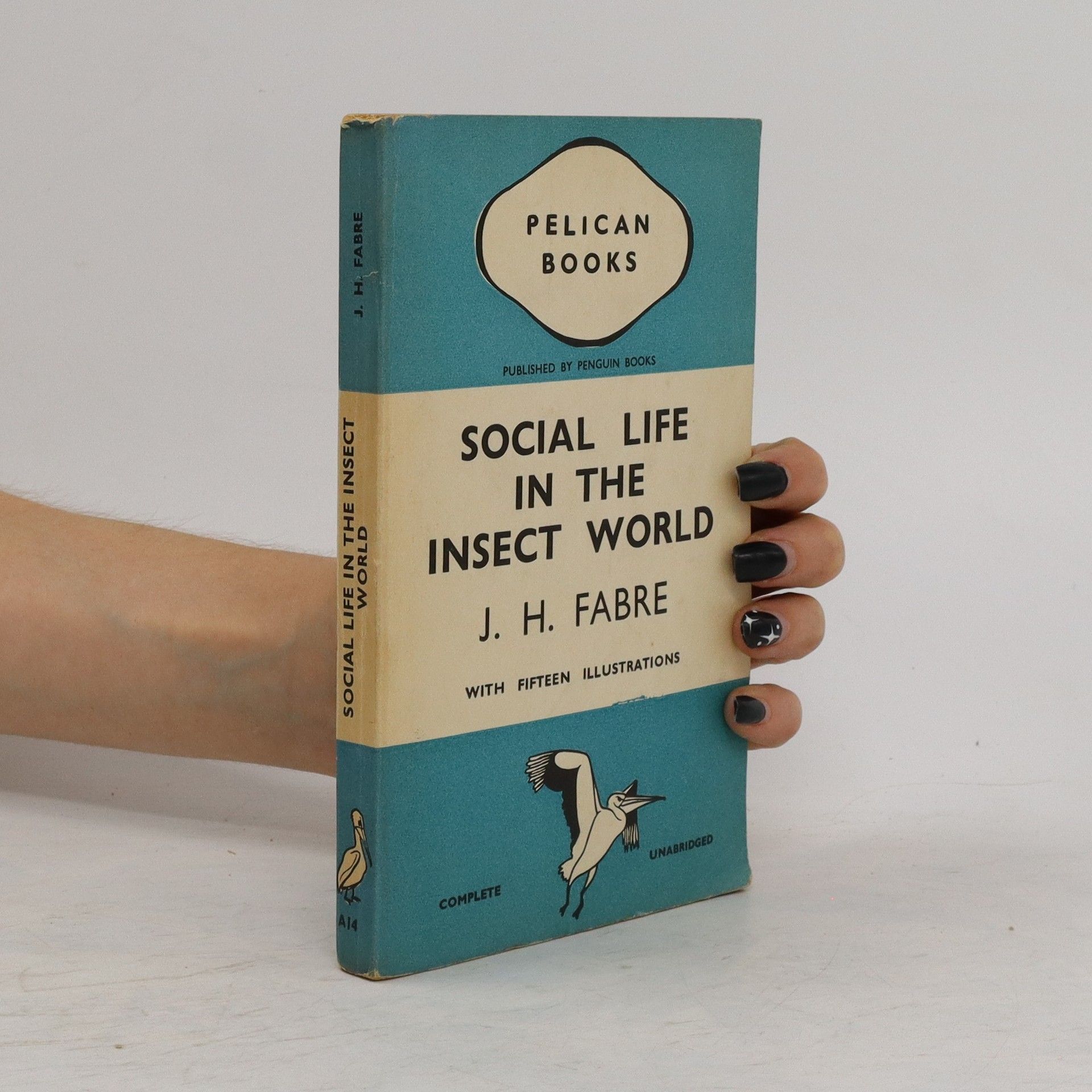Hailed by Darwin as "The Homer of Insects," famed French entomologist Jean Henri Fabre (1823–1915) devoted hours of rapt attention to insects while they hunted, built nests, and fed their families. Working in Provence, in barren, sun-scorched fields inhabited by countless wasps and bees, he observed their intricate and fascinating world, recounting their activities in simple, beautifully written essays.This volume, based on translations of Fabre's Souvenirs Entomologiques, blends folklore and mythology with factual explanation. Fabre's absorbing account of the scarab beetle's existence, for example, begins with the ancient Egyptians' symbolic view of this busy creature, eventually leading to a careful discussion of its characteristic method of rolling a carefully sculpted ball of food to its den. Elsewhere, he discusses with infectious enthusiasm the physiologic secrets behind the luminosity of fireflies, the musical talents of the locust, the comfortable home of the field cricket, and the cannibalism of the pious-looking praying mantis, among other topics.These charmingly related stories of insect life are a rare combination of scientific study and literary classic that will delight entomologists, naturalists, and nature lovers alike.
Jean Henri Fabre Libros
- homère des insectes
- Lou Felibre di Tavan







The Wonder Book of Chemistry
- 272 páginas
- 10 horas de lectura
Join Jules and Emile as they embark on an educational journey with Uncle Paul, who reveals the fascinating world of chemistry. Through engaging experiments and explanations, readers will discover the fundamental concepts and intriguing mysteries of the science. This interactive experience encourages curiosity and exploration, making complex ideas accessible and enjoyable for young learners.
The Life of the Fly; With Which are Interspersed Some Chapters of Autobiography
in large print
- 876 páginas
- 31 horas de lectura
The book features a reproduction of a historical work, presented in large print to enhance accessibility for readers with impaired vision. Published by Megali, a company dedicated to making historical texts more readable, this edition aims to preserve the original content while ensuring it is approachable for all audiences.
The book is a reproduction of a historical work, presented in large print to enhance accessibility for readers with impaired vision. Published by Megali, a publisher dedicated to making historical texts more readable, it aims to preserve important literature while ensuring it is accessible to a wider audience.
Focusing on the intricate dynamics of insect societies, this classical work has been significant throughout history. Alpha Editions has ensured its preservation by modernizing the text, making it accessible for contemporary readers. The book has been meticulously reformatted and retyped, resulting in a clear and readable presentation, free from the limitations of scanned copies. This effort highlights the enduring relevance of social structures in the insect world for both current and future generations.
The book features a reproduction of an original historical work, specifically designed for accessibility. Published by Megali, a house known for producing large print editions, it aims to facilitate reading for individuals with impaired vision, ensuring that classic literature remains available to a wider audience.
The Mason-Bees
- 144 páginas
- 6 horas de lectura
Focusing on mason-bees, this work offers a deep dive into their biology, behavior, and ecological significance. Fabre's meticulous observations reveal the intricacies of their colonies, nesting habits, and reproduction cycles, emphasizing their vital role in pollination and biodiversity. His engaging prose and vivid storytelling invite readers to appreciate the wonders of nature and the interconnectedness of life. This book showcases Fabre's legacy as an entomology pioneer, providing a captivating glimpse into the enchanting world of insects.
This book is a reproduction of a historical work, published by Megali, a company dedicated to creating large print editions for improved accessibility. It aims to facilitate reading for individuals with impaired vision, ensuring that important texts remain available to a wider audience.
The publishing house Megali focuses on making historical works accessible by reproducing them in large print, catering specifically to individuals with impaired vision. This initiative emphasizes inclusivity in reading, ensuring that significant texts are available to a wider audience.
Insect Adventures
- 148 páginas
- 6 horas de lectura
Delving into the fascinating world of insects, this work presents a collection of engaging tales that showcase their unique behaviors and intricate lives. Through vivid storytelling, the author reveals the remarkable adventures of these small creatures, offering readers a deeper understanding of their roles in the ecosystem and the wonders of nature.